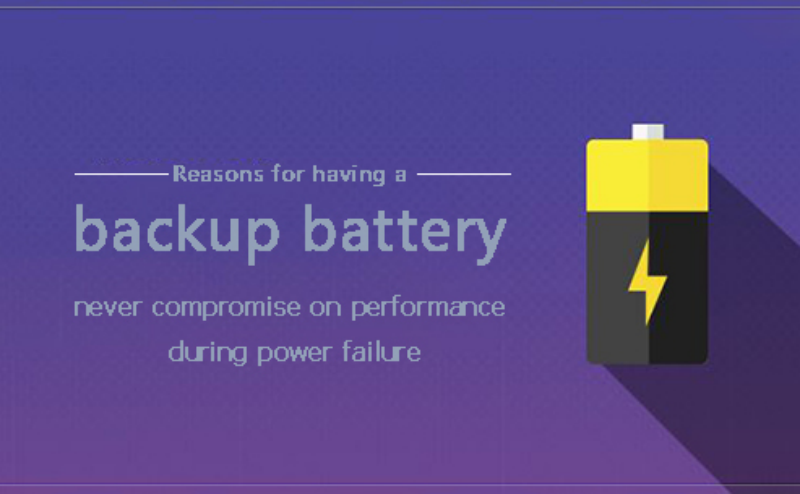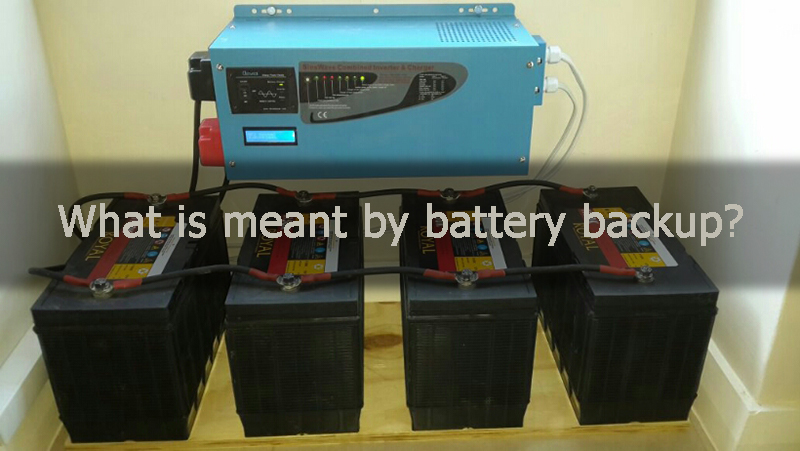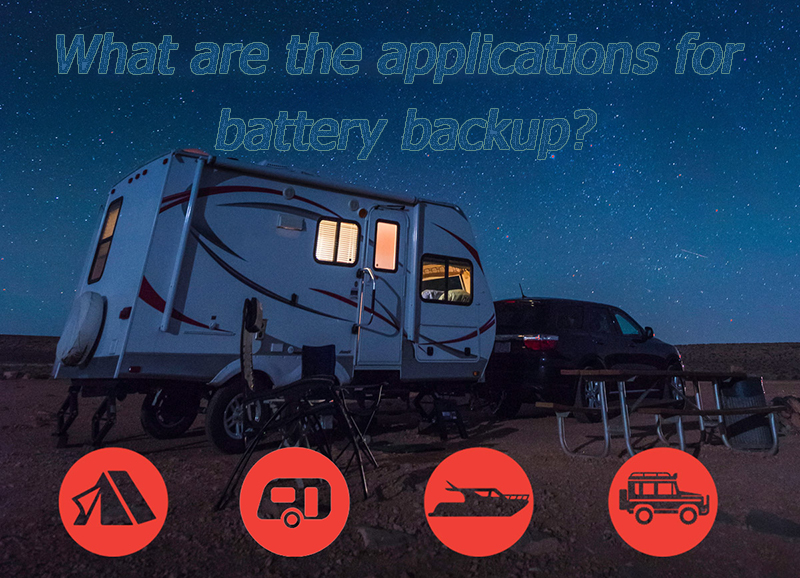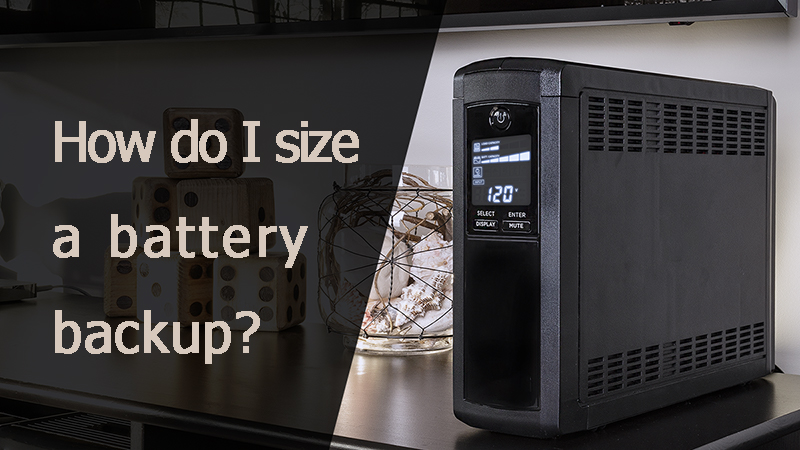
Main content:
- What is meant by battery backup?
- What is a battery backup good for?
- What is the best battery backup?
- What are the applications for battery backup?
- How long will a battery backup last?
- How do I size a battery backup?
- How is battery backup calculation?
- Does UPS have a battery backup?
- Are all battery backups UPS? What is the difference between battery backup and UPS?
- How much does a battery backup cost?
- Final thoughts
Power-related issues are the main reason people have used battery backup to power devices. The surge protection of the battery back up ensures your device is kept running without any interruption. It also strengthens the equipment and allows it to run longer on a single battery charge. This article here will help you learn about the various parameters of battery backups that can be useful for you in the future, including how they differs from UPS batteries. So let's dig deeper inside the article to find out what you might be looking for.
1.What is meant by battery backup?
Battery backup is a hardware device that provides power for a short time to electronic devices like computers only if the main power supply is removed or out of order that it cannot run these devices. The term "battery backups" can also refer to a system that monitors the power source, such as a generator or power grid, and switches automatically to an internal battery supply when the external supply fails.

2.What is a battery backup good for?
A battery backup has many benefits, some of them are as follows:
- It provides an uninterrupted power supply, which can help keep your essential devices running without power.
- With this type of backup support, your mobile phone, laptop, tablet, and other devices can be protected from electrical interruptions. It provides a power source when you are away from home or on a trip to help charge your mobile and laptops.
- It helps to increase the life of electronic devices by reducing the sudden outrage electric shock effects.
- Power backup through batteries is more environmentally friendly than fuel-operated power generation sources.
- It provides a power source when you are away from home or on a trip to help charge your mobile and laptops.
- They cost significantly less as compared to fuel-operated power backups.
3.What is the best battery backup?
Battery backup is a DC (direct current) storage device that ensures that your electrical equipment will keep working if the power goes out. It can be a standalone device, an add-on installation to an existing backup generator, or an inverter. Several batteries are used to power electronic devices, but the lithium-ion battery stands out among all types of batteries. There are some of the reasons why Li-ion batteries are best for battery backups, which are given as follows:

- Li-ion batteries have the highest energy energy that no other type of battery can achieve.
- Compared to many other batteries, Li-ion batteries are maintenance-free, eliminating the cost of maintenance.
- Lithium-Ion batteries offer a meager self-discharge rate of about only 3.5% monthly, which is especially important for backup batteries.
- These batteries have better capacities to run many applications consuming higher powers.
- Best lithium batteries provide higher battery capacity and longer cycle life, lasting 10 years if charged and discharged on average once a day(4000/365≈10.96). This greatly lowers its average daily cost, making it more cost-effective compared to other batteries.
- Lithium-Ion batteries have a higher recharge speed, with some charging about 90% within two hours.
4.What are the applications for battery backup?
Batteries are becoming more and more common in daily usage. Batteries can have multiple applications for backup purposes. Some of them are given as follows:
① For home
When the power goes out, you can use your backup batterys to keep everything from your computers, cell phones, and other essential household electronics up and running.
② Hospitals
Hospitals have higher responsibilities to their patients, so they cannot afford power outages. They need to protect their computers from power failure during the overnight shift. Backup batteries will power the hospital's servers and equipment to ensure an outage does not threaten the facility's operations.

③ Data center
The data centers in communication and banking systems are the backbone of their system; without them, the system cannot run. So to keep these systems alive in emergencies or during power outages, they use batteries as a backup.
5.How long will a battery backup last?
You can expect a good battery to last about 5-10 hours with a total charge capacity. A battery backup will last for a certain length of time. Most backups work by storing a amount of power inside the unit. This stored power is used when electricity isn't available through your primary power source to protect your equipment against power outages, surges, brownouts, and other disastrous events. Typically, the life span of a battery backup is 12 months because it won't last forever. It can vary by battery type, model and brand. Lithium-ion batteries are suitable for battery backup due to their low self-discharge rate.
6.How do I size a battery backup?
There are a few steps that will allow you to size your battery backup system, which are given as follows:
- Enlist all the devices that you think can be powered by batteries
- Find and put the volts and amperes along with each device. You can find these units on the back of every device box or cover.
- Many electronic devices show their capacity in watts which you can easily convert into VA by dividing watts by their power factor.
- The home's power factor is generally considered 0.8, which is an expected value.
- After that, you can multiply the total volts amperes (VA) by the total number of equipment parts.
- Sum the total VA values together.
- To obtain a total, multiply the total by 12.
- Now while buying a battery backup system, remember this total VA must not increase from the battery VA.

7.How is battery backup calculation?
The battery calculation method is simple and easy to understand. You only need to understand basic parameters like the load capacity, battery capacity, and input voltage value. Here is the basic equation to calculate the battery backups:

8.Does UPS have a battery backup?
Yes, it's not uncommon for a UPS unit to have a battery backup. If a power outage occurs, the UPS will seamlessly transition to the battery and keep your devices up and running. These are widely deployed in industries and covered by insurance, meaning business owners can rest assured that their company will not be at risk of damage from power cuts. In a UPS, one battery string circulates a central hub regardless of how many attached batteries are. The other batteries in the string are charged and then replaced in turn.
9.Are all battery backups UPS? What is the difference between battery backup and UPS?
To be clear: A UPS is an uninterruptible power supply, which means it delivers backup in addition to surge protection against voltage spikes, which is a more advanced backup battery technology. In other words, all UPSs are battery backups, but with higher protection rates. As you probably know, the term "UPS" describes any device that protects against surges and sags.
For example, surge protectors are also referred to as UPS because they provide a UPS-like function. However, all battery backups are not UPS devices. You can differentiate between the two by looking at the input voltage required at the device's power cord or battery terminals.The difference between battery backups and UPS is given below in the table:
|
Battery Backups |
UPS |
|
|
10.How much does a battery backup cost?
The battery backup system cost depends on the load requirements of your house or office. The greater the load, the more costly will be the backup system. The cost ranges between $500 - $20000 for a backup system that can either be used as a solar battery backup or in a standard backup system.
11.Final thoughts
One of the best reasons to own a battery backup system is peace of mind, like home energy storage. You don't have to worry about power outages with a backup system. You can continue working as usual. If you are finding any difficulty in purchasing or selecting a power backup system, you might want to read the above guide about battery backup. If this guide is helpful for you, then do give us your feedback.